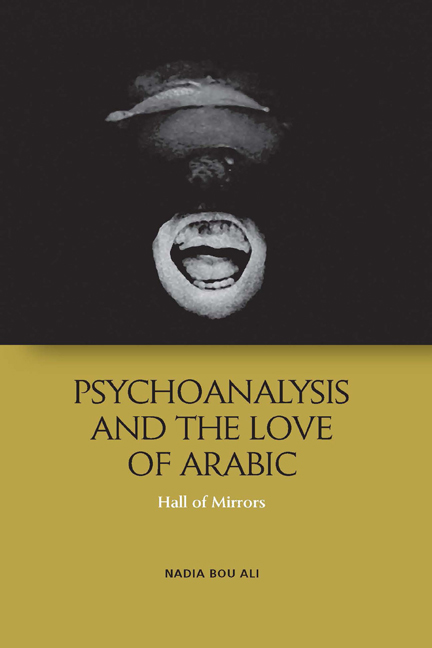Book contents
- Frontmatter
- Contents
- Acknowledgements
- Dedication
- Introduction: The Mirror of Language
- 1 Literature as a Ruthless Excavator of Culture: From the Literary Mode of Being to Lituratterre
- 2 Why is There Lalangue Rather than Nothing? Love of Lugha and Lalangue
- 3 Piercing the Bull’s Eye: The Sexual (Non-)Relation
- 4 A Liberal Psycho-theology
- Conclusion: The Abstractions of Homo Economicus: Now a Stomach, Now an Anus 161
- Notes
- Index
2 - Why is There Lalangue Rather than Nothing? Love of Lugha and Lalangue
Published online by Cambridge University Press: 17 September 2020
- Frontmatter
- Contents
- Acknowledgements
- Dedication
- Introduction: The Mirror of Language
- 1 Literature as a Ruthless Excavator of Culture: From the Literary Mode of Being to Lituratterre
- 2 Why is There Lalangue Rather than Nothing? Love of Lugha and Lalangue
- 3 Piercing the Bull’s Eye: The Sexual (Non-)Relation
- 4 A Liberal Psycho-theology
- Conclusion: The Abstractions of Homo Economicus: Now a Stomach, Now an Anus 161
- Notes
- Index
Summary
Beings of language aren't organized beings, but there is no doubt that they are beings, that they stamp their form upon man … it nevertheless remains true that they don't have any substantial existence in themselves.
– Lacan, The Psychoses (177)Hysteria is a question centred around the signifier that remains enigmatic as to its meaning.
– Lacan, The Psychoses (190)Language perceived as a mirror, in which an image of likeness is constructed, is nothing but the language of the social contract: a tool for communication to be possible and justified by a legitimate authority. This ‘image’ of language is one that is constructed by grammar specifically. It is grammar that constructs a unity of totality. And in grammar language is seized in a glance, all at once, as an imaginary totality. The question of mastery in language – its correctness and incorrectness – lies at the heart of grammar. As such, it is also a substitute question for the legitimation of the sovereign and the social contract.
Arabic grammar in particular has been concerned throughout its history with the problem of presumed ‘corruptions’ in or of the language: Arabic is eternal, like the soul, and it is to be guarded against error. In fact, it is the very fear of error, of corruption, of ‘low’ language (ammiya) that renders the first treatise of Arabic grammar possible. It is always the fear of the neophytes (the new Muslims, conquered people, and so forth) that renders the codification of correct linguistic norms necessary. The fierce debates between Arabic grammarians and logicians – exemplified in the famous medieval contestation between As-Sirafiand Abu Bishr Matta ibn Yunis – concerning the category of meaning shows how heavily guarded was the Arabic grammarian tradition against philosophy, against a ‘foreign logos’: while As-Siraficonsidered meaning a ‘semantic aspect of a phonetic expression’, Yunis claimed meanings referred to ‘logical operators of the mind’. Despite the consensus reached by the introduction of logic into Arabic linguistics, grammar largely remained Arabo-Islamic without foreign influence.
The beauty of Arabic grammar, conceived as an eternal synchronic, lies in its untarnished state, a pure language that does not submit to diachronicity, that seems to have subverted the historical break between grammar and linguistics inaugurated by the scientific revolution.
- Type
- Chapter
- Information
- Psychoanalysis and the Love of ArabicHall of Mirrors, pp. 70 - 97Publisher: Edinburgh University PressPrint publication year: 2020



